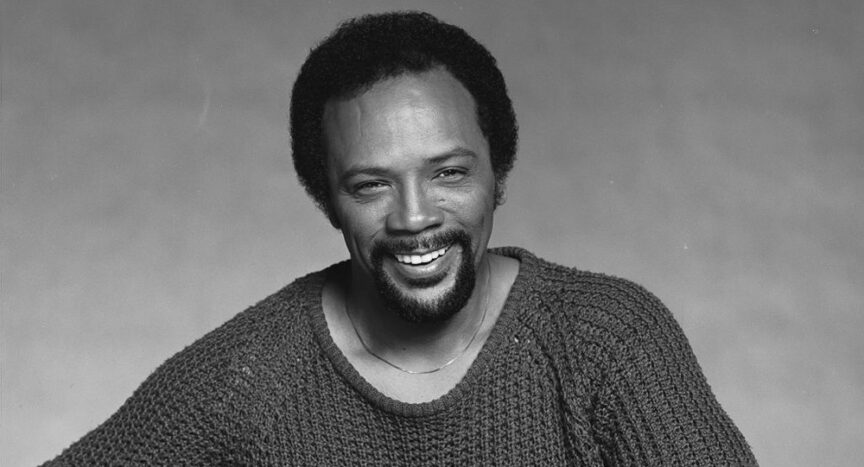Quincy Jones, the monumental architect behind some of the most iconic records in American music history, passed away Sunday, Nov. 3, 2024, at the age of 91. A true pioneer whose name is synonymous with musical excellence, Jones’ six-decade career broke down barriers across genres and borders, forever reshaping the landscape of modern music. His influence was unparalleled, leaving an indelible mark on the sound of Black music and beyond.
Quincy Jones’ remarkable career earned him an astounding 80 Grammy nominations, including a record-breaking 28 Grammy wins, solidifying him as one of the most celebrated figures in music history. He received the Grammy Legend Award in 1991, honoring his immense contributions across genres. Beyond the Grammys, Jones was a two-time Academy Award nominee for his film scores and earned an Emmy for his work in television, marking his achievements across music, film and television.
Jones’ career began in jazz, playing alongside Ray Charles in Seattle before establishing himself in New York, where he worked as an arranger for artists like Count Basie, Dinah Washington and Sarah Vaughan. He quickly grew into one of the industry’s most sought-after producers, merging jazz, R&B and pop in a way that gave a voice to Black music in mainstream spaces. His career in the 1960s with Mercury Records marked him as one of the first Black executives at a major label, a trailblazing accomplishment that positioned him to advocate for Black talent on a corporate level. He later became the creative force behind the hits of musical giants and promising stars alike, including Michael Jackson, Aretha Franklin, Frank Sinatra and Donna Summer.

Arguably Jones’ most legendary collaboration was with Michael Jackson. Their partnership began with Off the Wall (1979), the first of three albums that would change pop music history. With Thriller (1982), Jones helped shape Jackson’s groundbreaking style, producing some of the most recognizable tracks of all time, including “Billie Jean,” “Beat It,” and “Thriller.” It remains the best-selling album in history, capturing Jones’ genius for blending pop with rock, R&B, and funk. Their final project together, Bad (1987), cemented Jackson as a global icon and showcased Jones’ innovative, meticulous production style.
Jones’ work with Jackson was just a fraction of his impact. He elevated Frank Sinatra’s Sinatra at the Sands with lush arrangements, shaped Aretha Franklin’s Aretha Now, and crafted hits for George Benson’s Give Me the Night, Chaka Khan’s I Feel for You and Donna Summer’s Donna Summer. His versatility transformed each artist’s work into timeless anthems.
Beyond music, Jones leaves an indelible mark in film and television. His scores for In the Heat of the Night and The Color Purple earned him Oscar nominations, while his television compositions, like the theme for Sanford and Son, are embedded in American pop culture. As one of the first Black executives at a major label, Jones also broke barriers in the industry, laying the groundwork for countless Black artists and professionals to follow.
Jones graced the cover of EBONY four times, with his first feature in March 1976, chronicling his extraordinary evolution from jazz prodigy to cultural icon. His appearances symbolized his lifelong dedication to uplifting Black voices, using his platform to advocate for equity and excellence across all facets of music and media. On November 19, 2014, Jones was the guest of honor at the third annual EBONY Power 100 gala, which was held in Hollywood, California.
Jones was preceded in death by his brothers, Lloyd and Richard, and his former wife, actress Peggy Lipton. He is survived by his seven children, including actor Rashida Jones and actor and model Kidada Jones, as well as grandchildren.






